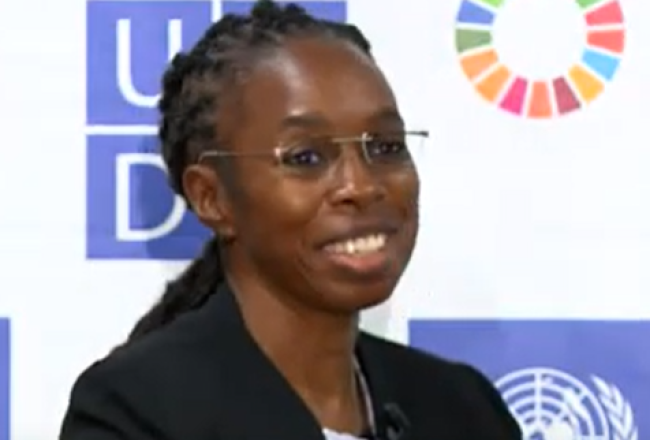NEPA and UNDP Join Forces to Reduce POPs
By: , August 17, 2023The Full Story
The National Environment and Planning Agency (NEPA) and the United Nations Development Programme (UNDP) have joined forces to reduce the amount of persistent organic pollutants (POPs) in Jamaica.
POPs are a group of organic compounds that have toxic properties, persist in the environment, accumulate in food chains and pose a risk to human health and the environment.
Human exposure, even to low levels of POPs, can lead to many health issues, including increased cancer risk, reproductive disorders, alteration of the immune system, neurobehavioural impairment, endocrine disruption, genotoxicity and increased birth defects.
These pollutants can be found in households, consumer products, waste disposal sites, soil and in the very food people eat.
It is for this reason that Pollution Prevention Branch Manager at NEPA, Bethune Morgan, has emphasised that “it is essential that we…[continue] to improve our mechanisms for monitoring and detection, so that we can fully regulate [and] ensure compliance enforcement as it relates to our borders”.
“Our border regulatory agencies are au fait with what should not be coming into the country. We have quite an astute pesticides control, and I’m certain that as it relates to the permits that are to be granted, that there would be extreme diligence to ensure that there are no POPs as pesticides that are coming in,” Ms. Morgan added.
She was participating in the UNDP ‘Stop the POP Help Series’, held virtually on Monday, July 31.
Ms. Morgan said that while it is difficult to put a percentage on the number of pollutants that have been banned, “there has been an effort to ensure that whatever is listed as POPs is not on the list that is permitted for import”.
With Jamaica being a signatory to the Stockholm Convention that calls for the proper management and elimination of POPs that linger wherever they are released, causing significant harm to human health and the environment, she noted that significant progress is being made in this regard.
“Significant progress is also being made to ensure that polychlorinated biphenyls (PCBs) are moved out of the country, and we’re hopeful that with the 2028 deadline, we will be at the levels that the Convention requires us to be,” she said.
Under the Convention, Jamaica has a key obligation to ensure that POPs, especially those which are listed in Annex A for elimination, are not imported or used in the country.
“There are, however, Annexes that allow for restriction of use and that means that there are some exemptions,” Ms. Morgan pointed out.
For Unintentional POPs (UPOPs) which are derived from human-caused sources, such as open burning, she explained that it would be “nearly impossible” to eliminate those if proper procedures are not in place and citizens educated about the adverse effects.
In this instance, the primary role of NEPA, as the regulatory entity, is to ensure that there is protection of the environment and human health from POPs where they exist and avoid and eliminate their use locally.
As such, education along the line of getting persons to refrain from burning and, instead, utilising waste management services to cut back on those pollutants, will be paramount, Ms. Morgan argued.
Other key roles of NEPA include ensuring that air quality regulations are in place to directly address pollutants that can be transported by air as well as regulating the storage, disposal and management of facilities whose activities would generate POPs unintentionally.
Ms. Morgan explained that NEPA also has the capability, through its regulatory system, to store products, such as transformers used for electricity, as these require storage under certain conditions.
“We have the permits and licence system [which outline] that you require permit for the storage and conditions to be met during storage. We also have regulations that govern the transboundary movement of this waste when it’s being exported to another territory for environmentally sound management, as we’re unable to conduct [this] particular practice locally,” she said.
“We also have the regulations to ensure that it’s governed appropriately, and… allow it to be exported under conventional requirements for treatment elsewhere,” Ms. Morgan added.
Even with the various roles that NEPA plays in reducing POPs in Jamaica, it does not have full autonomy over the process, as it crosses various sectors, including energy and agriculture.
Funding for the ‘Stop the POP’ initiative is being provided by the Global Environment Facility (GEF).


